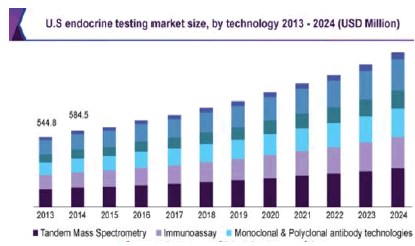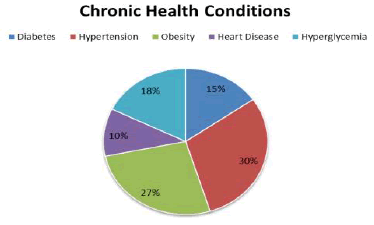Market Analysis, Ecdr Vol: 5 Issue: 3
2nd Annual Congress on Diabetes & Endocrinology Scheduled in September 17-18, 2020 at Rome, Italy
Riya Olivia
Professor, Department of Endocrinology, Gazi Unversity, Ankara, Turkey, E-mail: riyaolivia2019@gmail.com
Diabetes has been described in ancient scripts and familiar as a serious illness, but it does not appear to have been commonly through physicians or healers. It is in the past few decades that human health and development are increasingly affected by the rising numbers of people with this condition. Diabetes, together with cardiovascular disease, cancer, and chronic respiratory disease has been targeted in the political declaration on the prevention and control of Non-communicable Diseases (NCDs) at the Un High-level Political Meeting in 2011. In 2013 WHO member states endorsed a global monitoring framework for non-communicable diseases, with 9 targets to be reached by 2025. Diabetes and its important risk issues are strongly reflected in the targets and indicators-reduction of exposure to unhealthy diet and physical inactivity, zero rises in the frequency of diabetes, better-quality access to treatment and reduction of premature mortality.
Growing incidences of endocrine disorders such as hyperthyroidism and adrenal insufficiency is predicted to boost the demand for endocrine testing. The growing diabetic, geriatric and obese population worldwide is expected to promote the market growth. Furthermore, growing healthcare awareness among individuals coupled with increasing government support is expected to increase the diagnosis at an early, thereby contributing to the growth of the endocrine testing market.

Owing to increasing health awareness around the world, there has been advancement in home health care along with easy operating home diagnostic kits which are cost effective and designed with precision. Many new mass spectrometric technologies have been introduced which deliver accurate results in less time and they are highly sensitive. Mass Spectrometry is now coupled with liquid chromatography for more precision. Tele-health services have also been introduced by some commercial laboratories and stand-alone clinics.
Based on test type, the market is segmented into Estradiol (E2), Human Chorionic Gonadotropin (hCG), Follicle Stimulating (FSH), Dehydroepiandrosterone sulfate (DHEAS), Progesterone, Luteinizing Hormone (LH), testosterone, thyroid prolactin, Thyroid Stimulating Hormone (TSH), cortisol, insulin, and other tests such as gastrin, thymosin, and secretin tests.
Thyroid stimulating hormone (TSH) test accounted for a lucrative share in 2016; this can be attributed to the increasing incidences of TSH-related disorders and the growing awareness regarding correlation between variations in the thyroid hormones levels and cardiovascular disorders.
Insulin test is anticipated to witness the fastest growth over the forecast period. The substantial rise in the diabetic population and the growing awareness about diagnosis are anticipated to contribute towards the demand for insulin test over the forecast period.
Key technology segments include tandem mass spectrometry, immunoassay, monoclonal & polyclonal antibody technologies, sensors, clinical chemistry technologies, and others such as Liquid Chromatography with Mass Spectrometry (LC-MS).
The tandem mass spectrometry is expected to dominate the market during the forecast period. This can be attributed to growing use of tandem mass spectrometry in combination with liquid chromatography which helps in overcoming the challenges associated with traditional techniques used for endocrine testing.
Sensor Technology is expected to show the fastest growth among all the segments owing to growing use of biosensors in glucose monitoring for diabetes which is used on routine basis by the individuals to monitor their blood sugar level in undiluted blood samples.

Major Diabetes Research Associations around Asia Pacific:
• Diabetes Australia Research Program
• Juvenile Diabetes Research Foundation (JDRF)
• The Australian Centre for Behavioral Research in Diabetes
• The Diabetes Research Foundation Western Australia
• The John Curtin School of Medical Research
• The NHMRC Centre of Clinical Research Excellence on Clinical Science in Diabetes (Diabetes CCRE)
• Baker
• The Walter and Eliza Hall Institute of Medical Research
• Diabetes Australia
• Austrian Diabetes Association
• Dietitians Association of Australia
• Diabetes Association Brisbane
• Canadian Diabetes Association in Sydney
 Spanish
Spanish  Chinese
Chinese  Russian
Russian  German
German  French
French  Japanese
Japanese  Portuguese
Portuguese  Hindi
Hindi 


